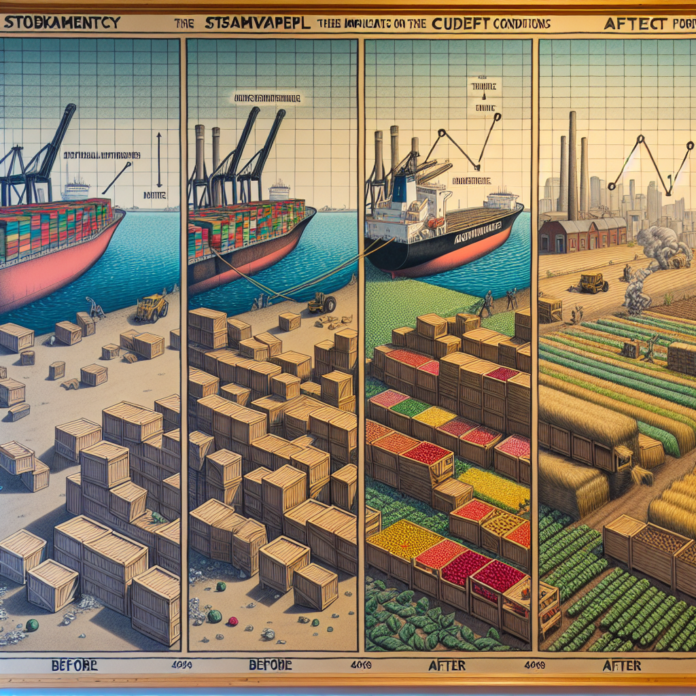Understanding the Impact of US Dockworker Strike on Agriculture Through Three Charts
Understanding the Impact of the US Dockworker Strike on Agriculture
The US dockworker strike has significant implications for various sectors, particularly agriculture. This event has disrupted the supply chain, affecting the movement of goods both domestically and internationally. Here, we present three detailed charts to elucidate the strike’s impact on the agricultural industry, along with additional insights into the broader consequences.
Chart 1: Disrupted Supply Chains
The first chart highlights the disruption in supply chains caused by the dockworker strike. Ports serve as critical nodes for the import and export of agricultural products. The strike has led to increased congestion at these points, causing delays in the shipment of goods. This disruption affects perishable goods more severely, as delays can lead to spoilage, resulting in financial losses for farmers and distributors. Moreover, the increased wait times and logistical challenges have led to rising costs for transportation and storage.
Chart 2: Economic Impact on Farmers
The second chart focuses on the economic repercussions for farmers across the nation. The strike has caused a backlog in the transportation of agricultural products, leading to an oversupply in some regions and shortages in others. This imbalance affects market prices, causing volatility that can harm farmers’ income stability. Additionally, the cost of inputs such as seeds, fertilizers, and equipment has increased due to the disrupted supply chain, further squeezing farmers’ profit margins.
Chart 3: International Trade Implications
The third chart examines the implications for international trade. The US is a significant exporter of agricultural goods, and the strike has hindered the ability to meet international demand. This disruption not only affects current trade relationships but may also damage the reputation of US agriculture as a reliable supplier. Furthermore, competitors in the global market may seize this opportunity to capture market share, potentially leading to long-term consequences for US exports.
Additional Insights
Beyond the immediate disruptions, the dockworker strike underscores the vulnerability of the agricultural sector to logistical challenges. It highlights the need for a more resilient and adaptable supply chain infrastructure. To mitigate future risks, stakeholders in the agricultural industry may need to explore alternative transportation routes, diversify export markets, and invest in technology to improve supply chain efficiency.
Moreover, the strike has drawn attention to the labor issues within the shipping and logistics industries. Addressing these labor concerns could be vital in preventing similar disruptions in the future. Policymakers, industry leaders, and labor representatives may need to collaborate to find sustainable solutions that balance workers’ rights with the economic needs of the nation.
In conclusion, the US dockworker strike has had a profound impact on agriculture, revealing systemic vulnerabilities and highlighting the importance of a robust supply chain. Understanding these challenges is crucial for developing strategies to safeguard the agricultural sector and ensure its continued growth and success.


